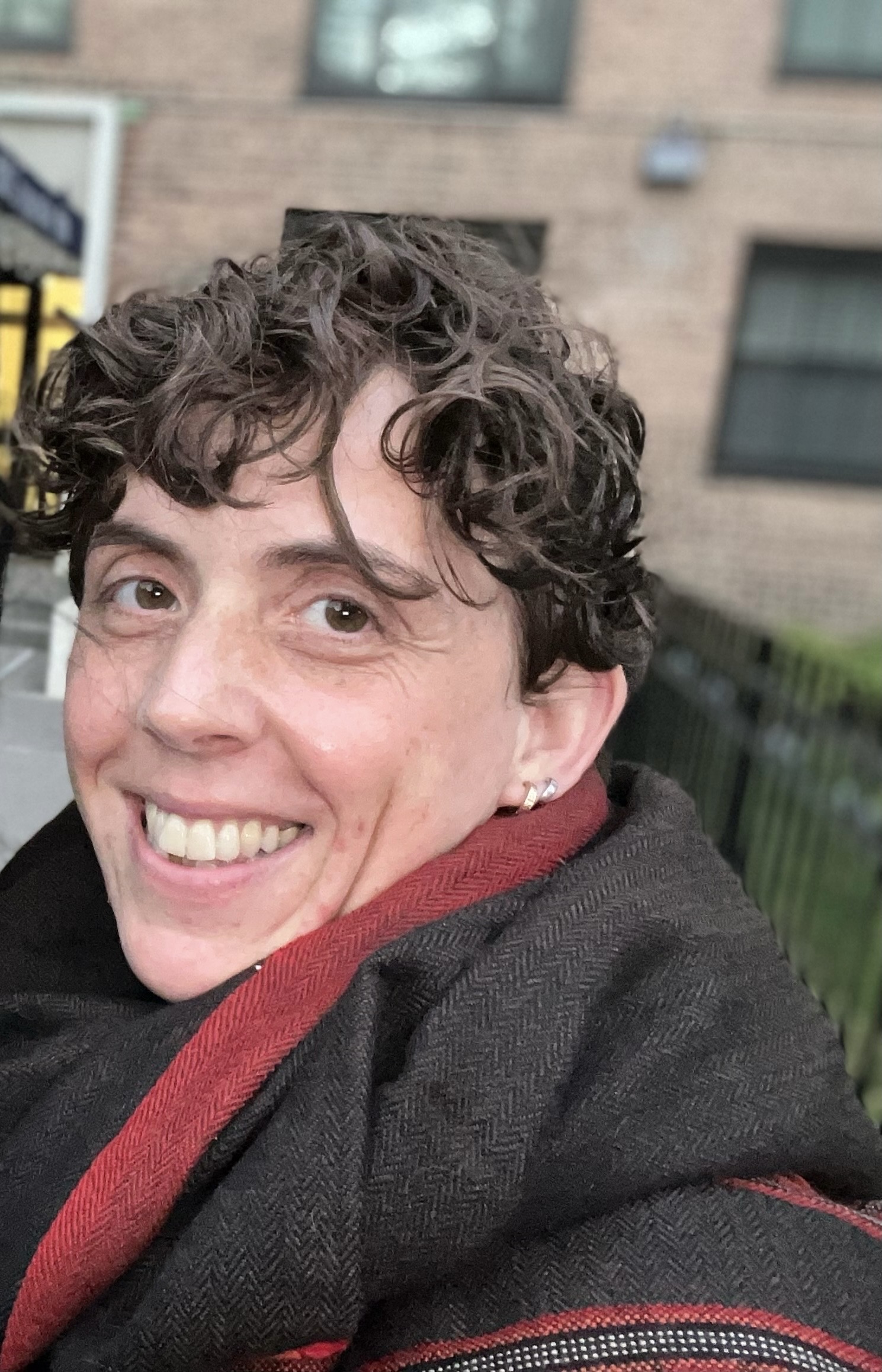Lily Mellitz ’26
Executive Features Editor
This semester, Trinity College welcomes a new face to its faculty: Dr. Nadja Eisenberg-Guyot, Assistant Professor of Anthropology, who brings a rich and varied background to our college on the hill. “I was born in California, grew up in Boston and went to college in Philadelphia, where I lived for eight years,” they shared. “After that, I moved to New York City to pursue a Ph.D. in cultural anthropology at the CUNY Graduate Center. I ended up staying in NYC for 13 years, completing my dissertation and then starting a postdoctoral fellowship at Columbia University. Now, I call Brooklyn home, although Philadelphia will always hold a special place in my heart.”
Despite a lifelong interest in teaching, Eisenberg-Guyot did not initially set out to become a professor. In fact, their early career path took them in a different direction. “I went to college part-time and worked full-time in a variety of nonprofits,” they explained. It was their experience at Prevention Point Philly, a harm reduction organization in Philadelphia, where they really found their calling. There, they supported the autonomy, self-determination and well-being of people who use drugs, many of whom were unhoused and faced structural violence. It was this work that ultimately drew Eisenberg-Guyot to anthropology.
“Anthropology was a discipline where I could study and theorize alongside people who use drugs about police violence, incarceration and the War on Drugs, and what forms of social support and collective life they desire.”
As they entered their Ph.D. program, Eisenberg-Guyot had their first experience teaching — and they immediately fell in love with it. “I understand teaching to be an extension of my organizing work,” they said. “[It’s] a way to bring students into [a] deeper and richer understanding of their social worlds and how to transform them. In turn, I love being transformed by my students and the brilliance, creativity, life experience and rigor they bring to the classroom.”
Their research continues to reflect their interest and dedication to social justice. Eisenberg-Guyot’s current project includes two forthcoming books. The first, “Against Rehabilitation,” “uses ethnographic research from drug courts, court-mandated drug treatment and jails and prisons across New York to argue that so-called ‘alternatives to incarceration’ programs are expanding” the reach of the carceral state, reproducing systems of anti-Blackness, classism and ableism. “This is paradoxical,” Eisenberg-Guyot noted, “given that many people believe that programs like these will lessen the violence of the failed War on Drugs.” Their second project, “Outlaw Healing,” is written for a broader audience and explores how “criminalized women who use drugs envision justice, healing and liberation outside” the traditional structures of policing and forced rehabilitation.
What drew Eisenberg-Guyot to Trinity College was its dedication to community-based research and social justice. “Much of my research is collaborative,” they said, and “being part of an institution dedicated to community-based and participatory research is paramount to me. […] I’m thinking not only of the Center for Hartford Engagement and Research, but the Trinity Prison Education Program and the Trinity Social Justice Initiative, all of which exemplify commitments to social justice in the Hartford region.”
Since joining Trinity this fall, Eisenberg-Guyot has been impressed by the enthusiasm and intellectual curiosity of the students. “It’s so early in the semester […], but I have been awed and humbled by the willingness of students in both my classes — Introduction to Anthropology and Introduction to Medical Anthropology — to take intellectual risks and speak up on challenging topics,” they said. “[The] beginning of the semester can be anxiety-producing, as students are getting to know each other and me as a professor and are simultaneously being introduced to new materials and ways of seeing the world. Despite this difficulty and complexity, Trinity students’ willingness to jump right in has been awesome.”
Beyond teaching and research, Eisenberg-Guyot is deeply committed to rethinking how education can become more accessible and transformative. They’ve spent years thinking about how to combine disability justice principles, universal design for learning (UDL) practices, and bell hooks’s notion of “teaching to transgress” to create more inclusive and anti-racist classrooms.
“What does an anti-racist, feminist classroom look and feel like? How do we know we are living up to our values as teachers to create classrooms that embrace, challenge and transform?” they asked. “I am especially excited to keep thinking about these questions alongside students in future classes on abolitionist methods and disability-as-method.”
Eisenberg-Guyot also shares deep concerns about the future of higher education, particularly in light of recent attacks on affirmative action, critical race theory and free speech — especially regarding “recent attempts by universities to suppress student, staff and faculty speech on Palestine.”
“As a scholar of state violence whose research focuses both on how policing, incarceration and the ‘rule of law’ reiterate and reinscribe anti-Blackness, imperialism and settler colonialism in the United States and how communities resist state violence, I understand attacks on academic freedom to be, ultimately, attacks on the movements for social justice and peace,” they said. “[But] if we can’t teach about structural violence, we cannot hope to challenge or transform it.”
Looking ahead, Eisenberg-Guyot is excited to continue collaborating with Trinity students on projects that engage with the Hartford community. One such initiative planned for the spring will involve mapping the effects of the War on Drugs in Hartford, providing students with a hands-on opportunity to explore the local impact of national policies. In the meantime, Eisenberg-Guyot is focused on fostering strong connections with students and colleagues, and remaining deeply committed to creating spaces for collective learning and meaningful social transformation.
Driven by a passion for teaching, social justice and community engagement, Eisenberg-Guyot is eager to see where their journey at Trinity College leads.







+ There are no comments
Add yours